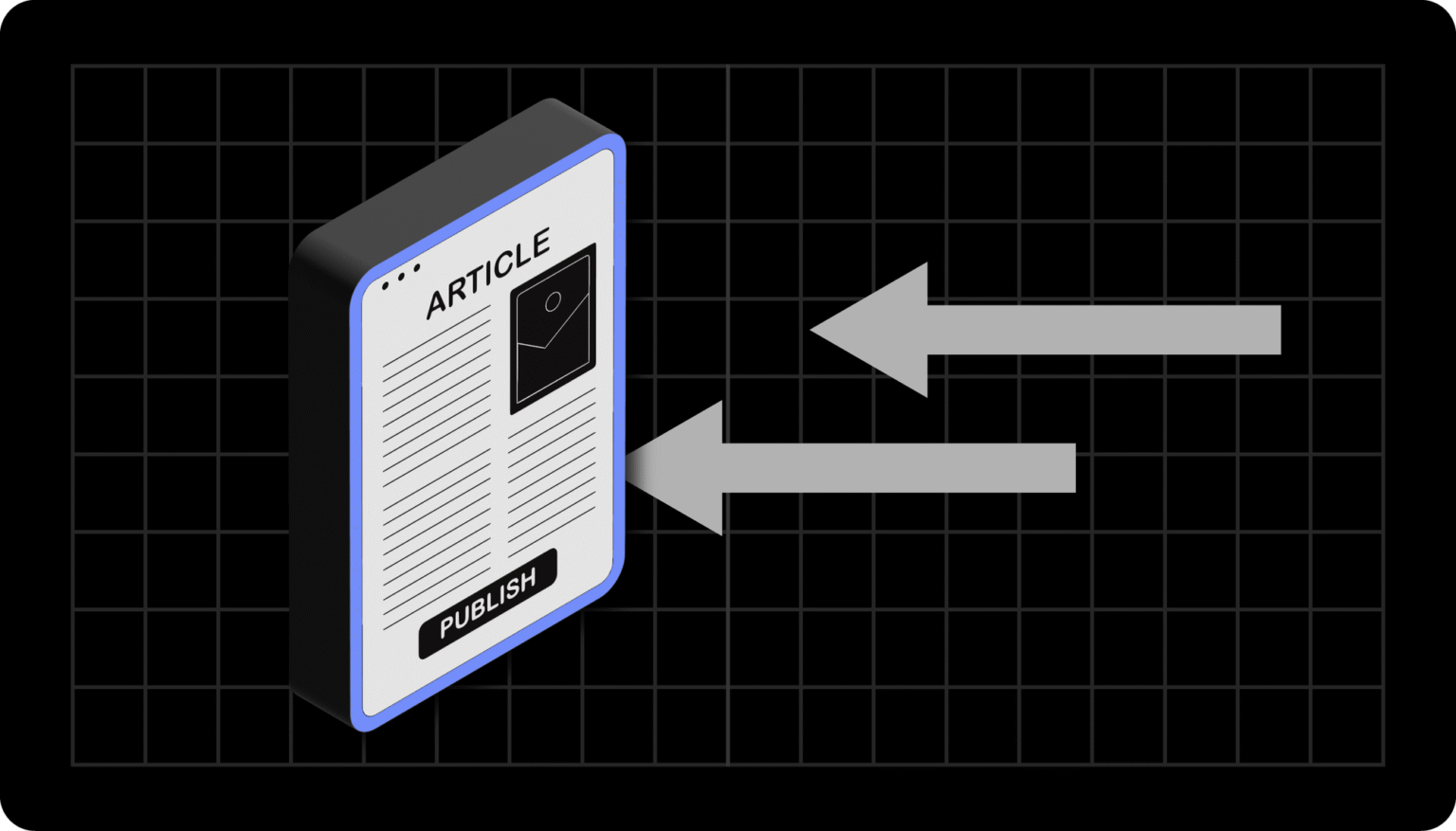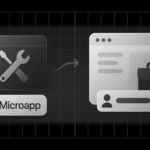Writing can be both fulfilling and challenging. Whether you’re creating content for your company or building a blog as a passionate writer, the pressure to consistently deliver high-quality work can be intense.
To boost traffic and keep your audience engaged, it’s essential to publish fresh, relevant content regularly. It’s no surprise that many writers feel overwhelmed trying to juggle ideas, deadlines, and performance expectations.
Over time, we’ve learned that producing excellent content involves a process of trial and error. With consistent practice, you can find your rhythm, but there are also intentional steps you can take to become a more productive writer.
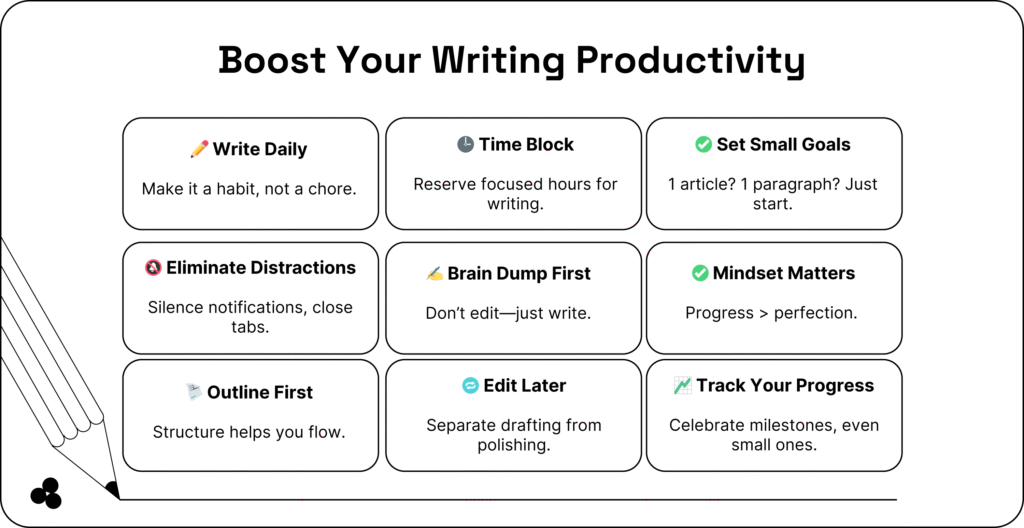
1. Get Organized
Writing requires organization, which helps you harness your creativity. First, plan your content by creating a content calendar. This calendar lets you track your stories, articles, and post deadlines.
Furthermore, it will help you collaborate with a team to add more details or make changes. Alternatively, you can set a time to commit to your writing. We found that waiting for inspiration often leads to delays, which can result in problems.
So, dive into your work to spark creativity. You can set goals, like finishing a specific number of words daily, and getting organized forces you to take action. When we have a clear plan to follow, we are more productive.
2. Create a Place For Writing
Writing more productively helps you reserve a spot to write your content comfortably. It can be a place like a neatly arranged desk, a quiet café, or a coworking space. Creating a place for your writing forms an association between your writing and the place. Hence, you can produce your content more easily in that space without distractions, which brings us to the next point.
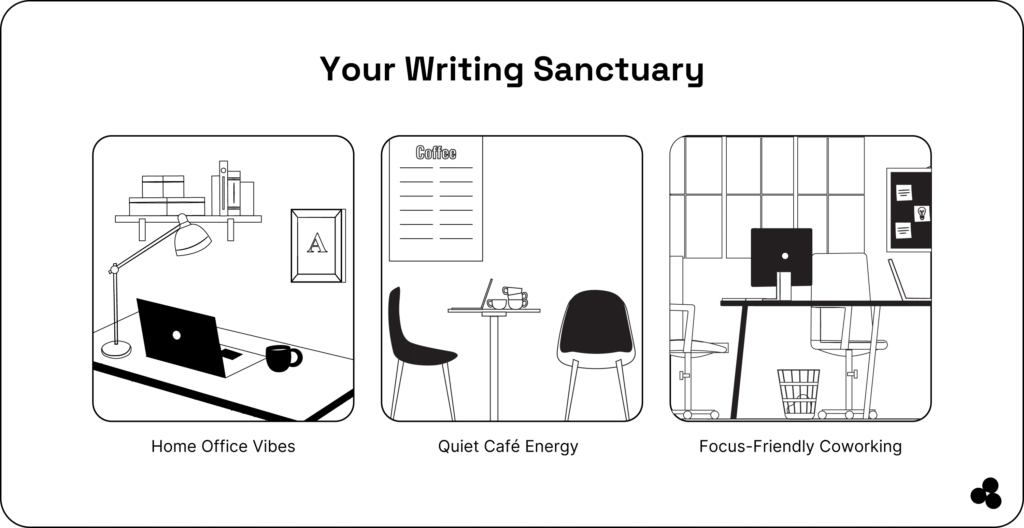
3. Block Out Outside Sounds
If you work in a team with noisy coworkers who frequently use their phones nearby, we recommend investing in headphones to listen to music and block out the noise. You can listen to what makes you comfortable; some enjoy white noise and other instrumental sounds.
💡 Read our article on how AI can help you with your content marketing here.
4. Invest in The Right Tools
As a microapp site, we’ve found that using tools to support your writing makes a significant difference. Here are some tool suggestions that help:
Google Drive: Google Docs is helpful because it automatically saves your content, ensuring you don’t lose it. Furthermore, you can share your work with others and make updates in real-time. You can even edit your document on the go using your phone.
Grammar Checker: There is nothing wrong with using a grammar checker to ensure your work is spot on. We have an excellent grammar checker that will help improve your writing. There is also a paraphrasing tool that allows you to rewrite text effortlessly.
Hemingway: If you write internet content, the Hemingway program is helpful. It highlights your convoluted sentences and suggests changes to make them easier to read.
Penman: Or you can use our Penman AI assistant to help with copywriting, SEO, marketing, and more. With it, you can create compelling content easily.
5. Start With a Creative Outline
Starting with an outline has several benefits, as it helps streamline your content creation and organize your ideas and thoughts. With structured content, you can develop well-structured content. If you write articles, you can list all the points you want to cover or use our outline generator tool to help.
6. Do Not Edit Your Work Right Away
Editing your work before delivering it is essential, but we found that editing it while writing can do more harm. You must focus on it as you double-check and reread your work.
These mental activities can block your creative flow and are best left until you’ve completed your writing. So, start with a draft as a separate activity and edit your work later. It will help you see any problems you may not have noticed.
So, separate your editing from your writing to look at your work again.
👉 Do you know how to write an effective job description? Learn how to write one here.
7. Pomodoro Technique
We use a Pomodoro timer, which follows the Pomodoro technique developed by Francesco Cirillo in the 1980s.
The idea is that you set your timer and write at 25-minute intervals. Then, take a 5-minute break to start writing again.
You feel like you have accomplished something when you hear the timer ring. Then, you can reflect on your writing in every session and see how you progress.
The timer will motivate you, provide a time to take a break, and help increase your attention span.
8. Switch Off The Wi-Fi
You do not need to turn your Wi-Fi off if you can write without looking at your phone, emails, or Facebook.
But if they cause a distraction, go ahead. Willpower can wear you out, and you can only take so much daily. Remove the temptations from your way to become a more productive writer.
💡 Make sure to check our article on AI vs. Traditional Writing.
9. Write What Scares You
If the above fails, then write what scares you. At least one idea of fear is playing in the back of your mind. It can be anything that keeps you up at night or an issue you’ve wanted to write about for a while.
Here are some steps that can help you get started:
- No censoring: Get messy without censoring yourself and type out your idea or problem nagging you in a few sentences. Rant about it. Even if it does not make sense, nobody will read it.
- Conclude: Read over what you have written to conclude the point of view related to the issue. You might not have the answers, but you will be able to articulate your argument clearly in a sentence.
- Jot down the points: Make a list of the points you must address within your article, and make notes under each point to do additional research to craft your convincing argument.
- Lastly, you connect the dots and remember that it doesn’t have to have an attention-grabbing intro. Dive right into it and craft your conversation with your reader by hitting on each point. You can return later to support those claims with your sources and then add your intro and conclusion.
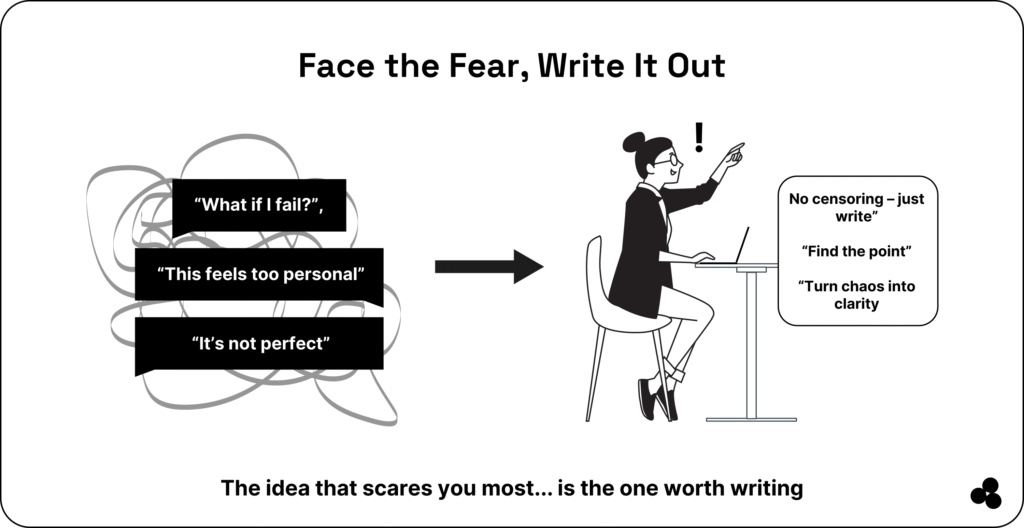
Wrap-Up: Take Control Of Your Productive Writing Today
Being a productive writer is its reward, allowing you to earn goodwill from your employer, clients, and readers. While the above tips might not work for everyone, we encourage you to try them. When you maximize your time, you can achieve your writing goals and become a productive writer.
